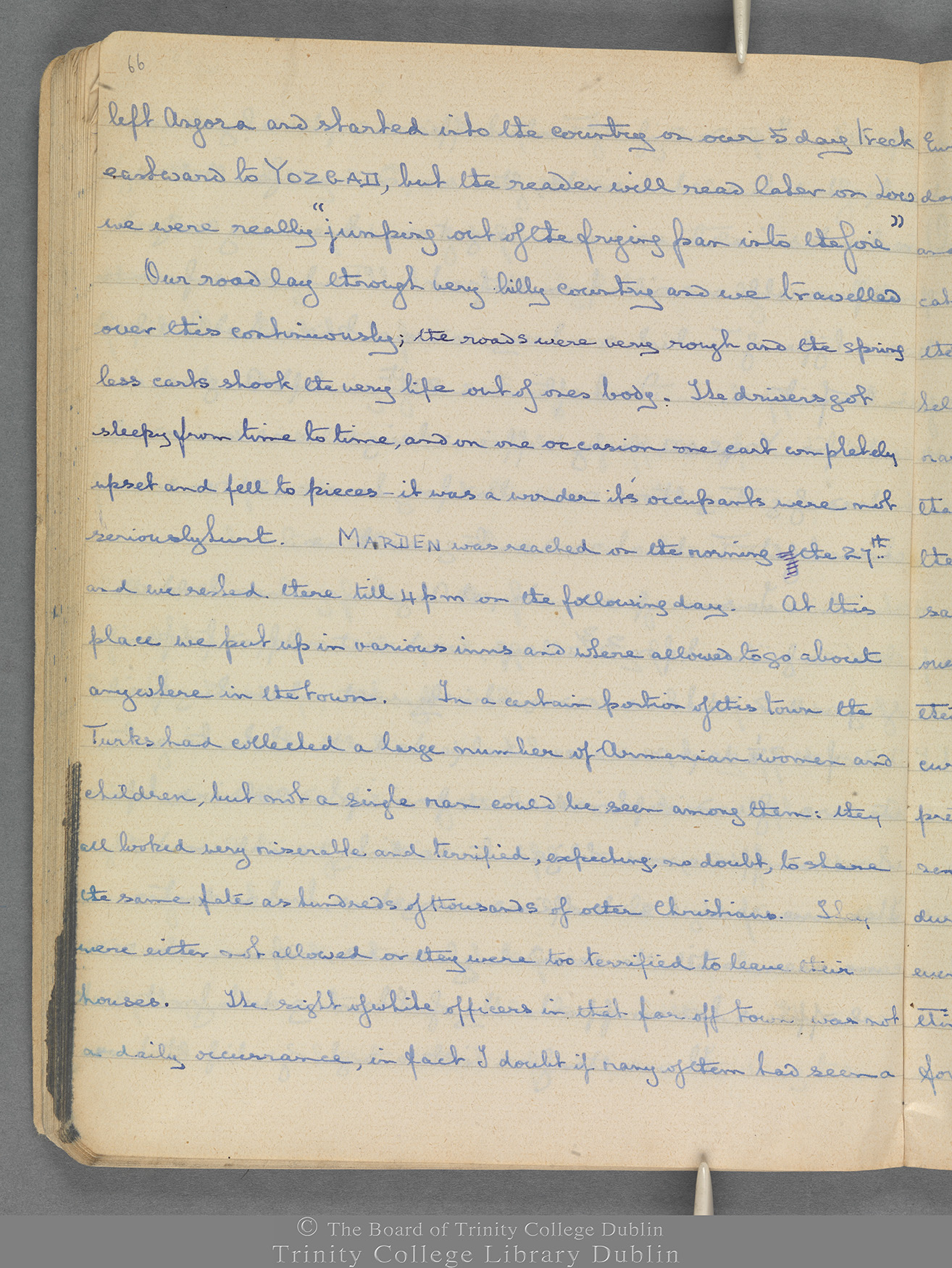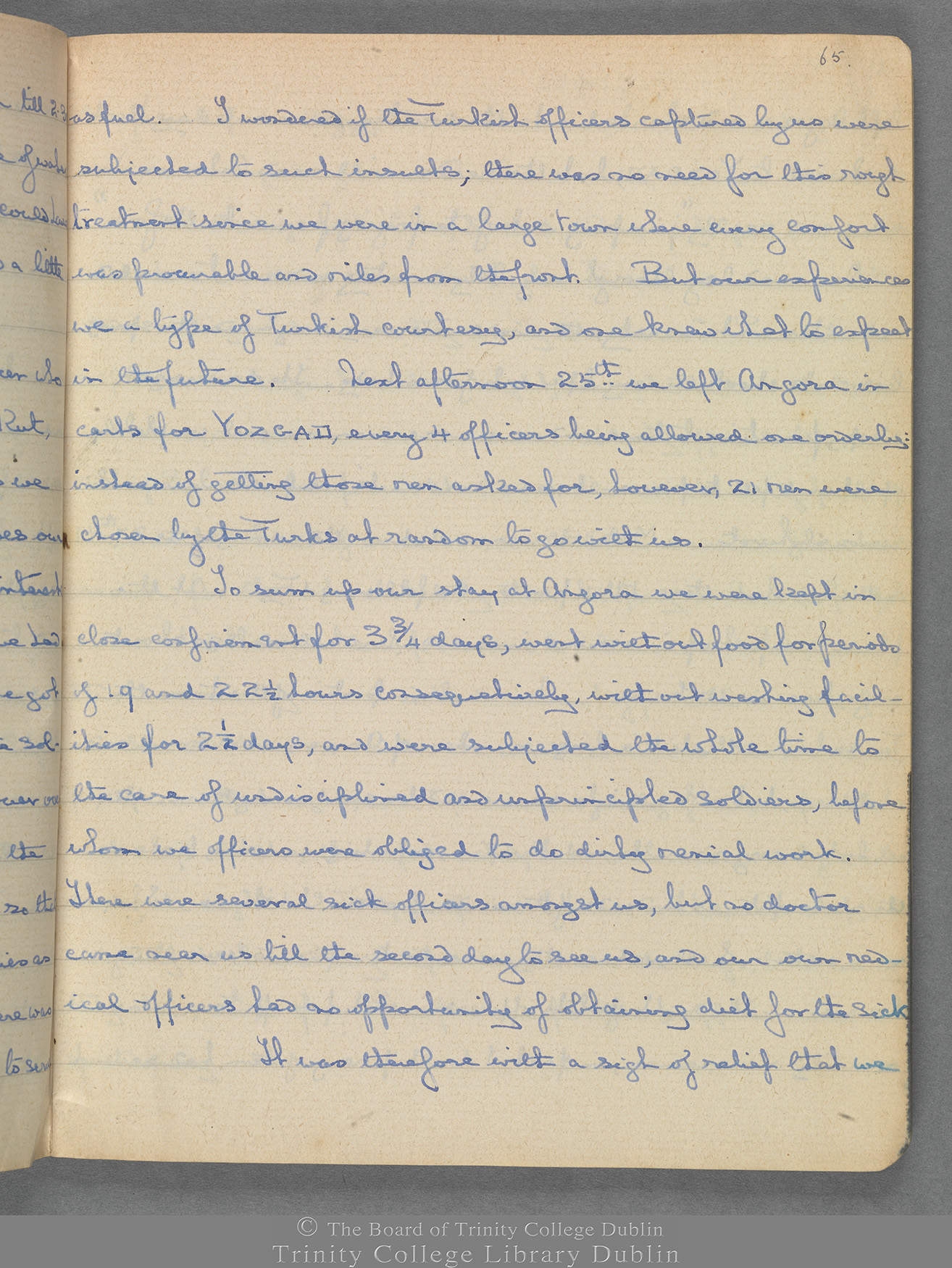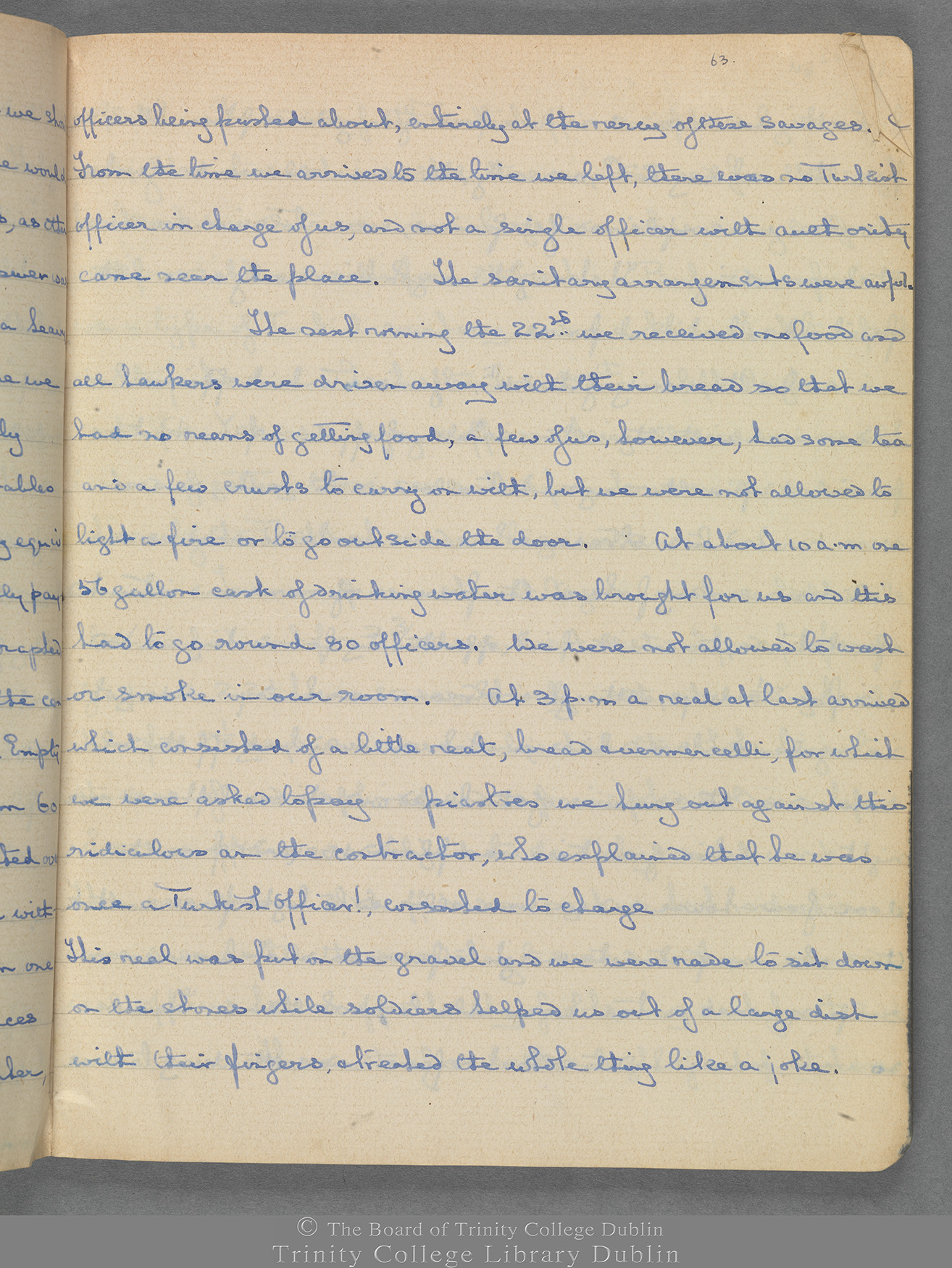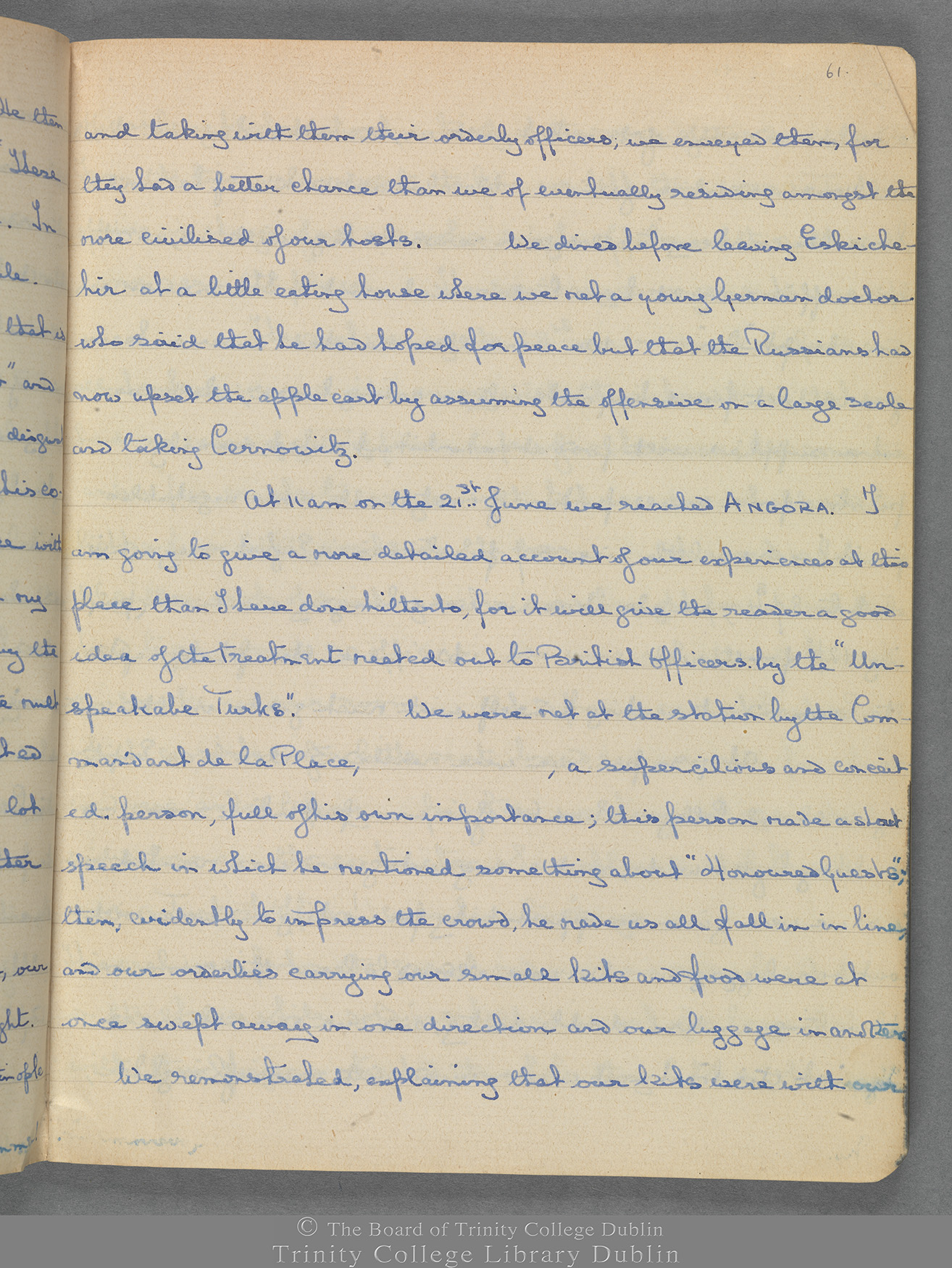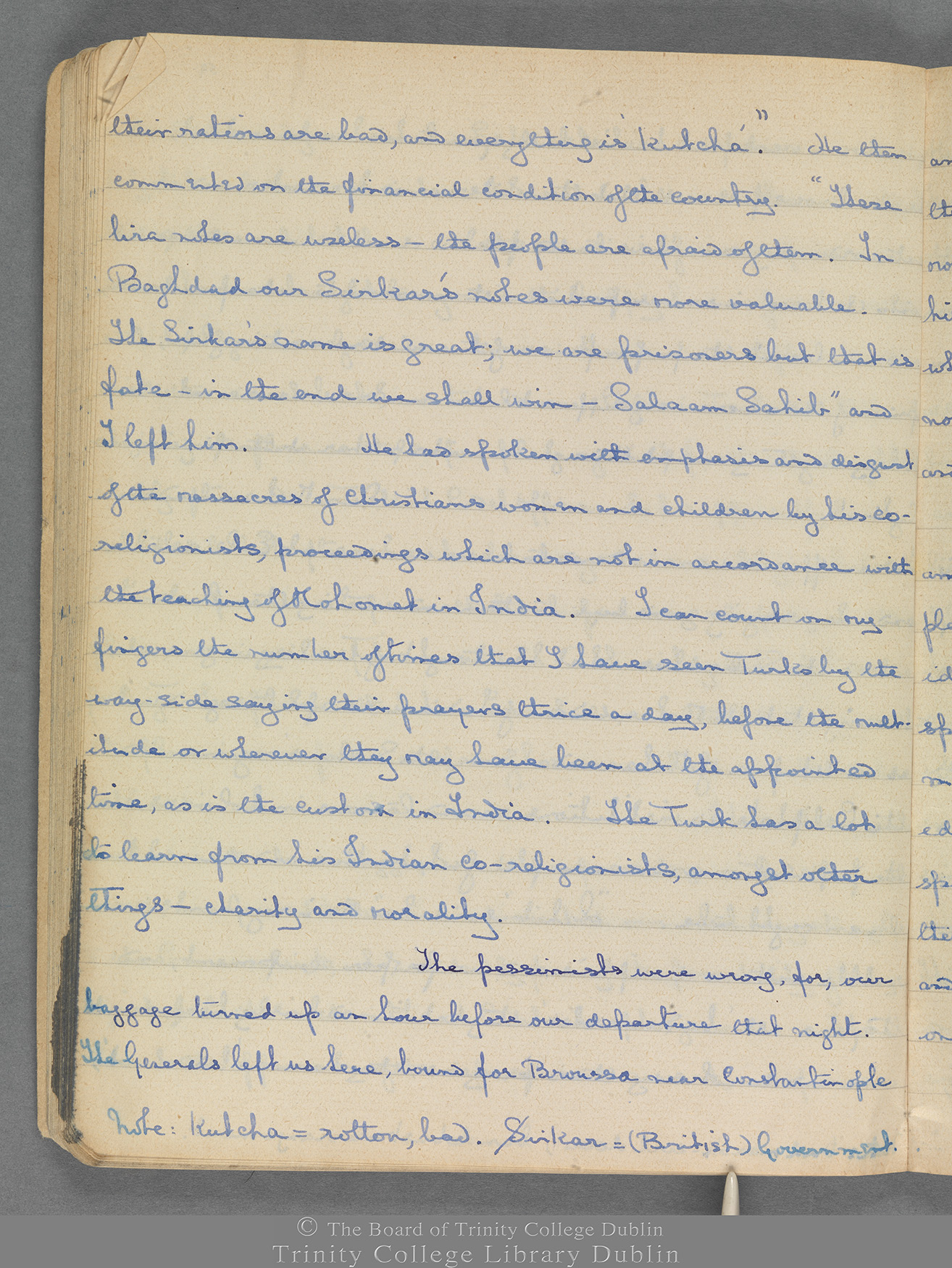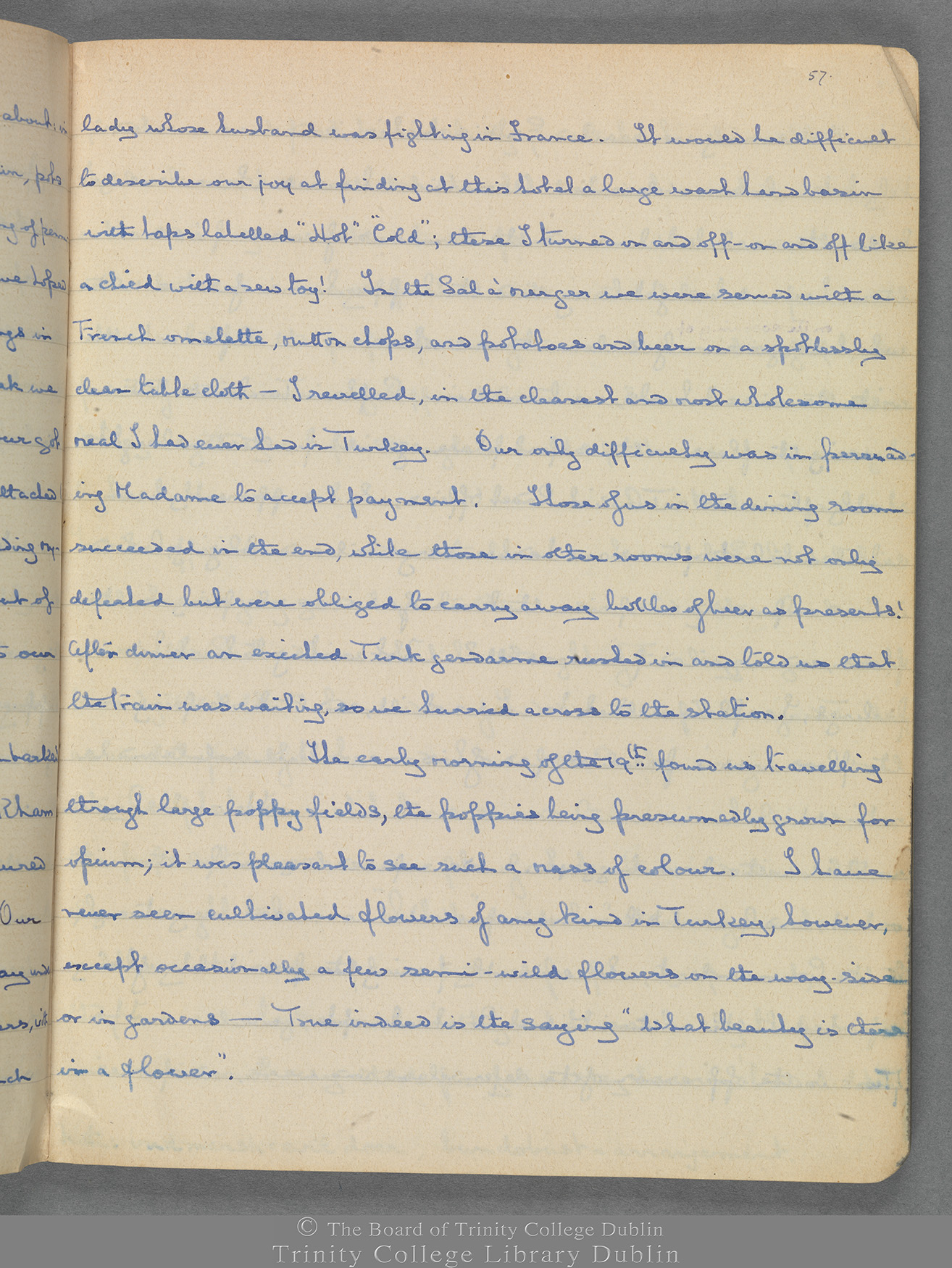[June 1916]
European before: they crowded to the windows and looked out of their doors and recognising us as Christians said “Armeen – Armeen” and made the sign of the Cross; in their unknown tongue one could catch here and there the words “Inglis” “Russe” and one understood their meaning – “When are they coming to save us”. Powerless to help them, and disgusted at the sight, we returned to the little market-square. An Armenian railway official told me that if England had forced the Dardanelles in the early part of the war, the lives of some 800,000 Christians would have been saved, for the Turks elated by their tempory success in Gallipoli over a christian nation, proceeded to exterminate the christians in their own country. A certain amount of provisions were procurable at MARDEN – under the usual conditions! – so we dined pretty well that night, and left over a cold leg of mutton for the next days ration; this unfortunately was commandeered by a cat during the night! To my surprise I found a chemists shop, but everything in it was very expensive – all the drugs, like every thing else, came from Europe and further supplies were not forthcoming.

